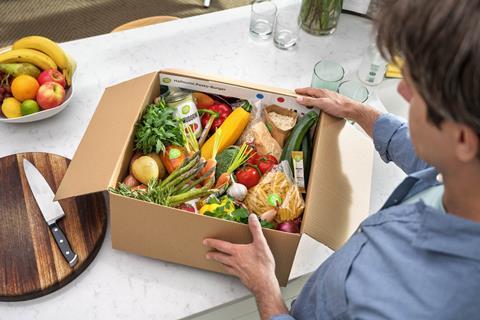
The coronavirus crisis has led to major, lasting changes to the way fresh fruit and vegetables are sold, prompting growers. processors and suppliers to seek out ways to adapt as a global recession looms.
Those are the headline conclusions drawn by new research carried out by Netherlands-based vegetable breeding company Rijk Zwaan, which spoke to a broad number of supply chain partners and industry specialists to understand the effects of the pandemic.
Supply chains for fresh fruit and vegetables are experiencing similar shifts across the globe, the report indicated.
For example, Rijk Zwaan specialists from regions including China, India, Russia, Europe, South Africa and the US all found that the pandemic had accelerated a transition to online shopping and home delivery, a trend that was already underway.
'This has prompted retailers such as Alibaba, Walmart, Carrefour and Lidl to increase their investment in online tools,' the company noted. 'Suppliers of meal kits and box schemes such as Marley Spoon and HelloFresh are increasingly gaining a foothold in the market, particularly in Europe and Australia.'
The foodservice sector, meanwhile, has been severely affected on all continents. Rijk Zwaan's report noted, for instance, that sales in that channel in the US were 70 per cent lower than normal in August.
Experts at Dutch group Rabobank have predicted that some of these channel shifts will turn out to be permanent.
Seeking inspiration
Rijk Zwaan also discovered that consumers worldwide are not only switching to new channels but are also increasingly choosing fresh and healthy food, with vegetables that have a long long shelf-life proving 'especially popular'.
This represents an opportunity for the sector, it suggested, adding that one of its team in Brazil had learned that consumers were actively looking for information about nutritional values.
'People are also increasingly choosing local products and suppliers,' it continued. 'Besides that, the pandemic has sparked a significant rise in home cooking, particularly in the US, Latin America, Asia, Europe and Australia, so consumers everywhere are hungry for inspiration. That explains the success of fresh meal kits, both in supermarkets and from suppliers of healthy box schemes.'
Rijk Zwaan said it was sharing its market insights with customers to help them adapt to these major changes, for example through product or market diversification or through investment in more efficient digital processes or mechanisation.
'The research reveals that finding sufficient labour is a major challenge for growers, as is creating a safe place to work,' it said.
'We are therefore investing in vegetable varieties that are aligned with these new needs, such as thanks to a long shelf-life, an appropriate size for meal kits and/or suitability for mechanical harvesting.'
Moreover, in conjunction with its partners, Rijk Zwaan continues to offer consumers plenty of inspiration for home cooking, for example through its LoveMySalad online platform.



